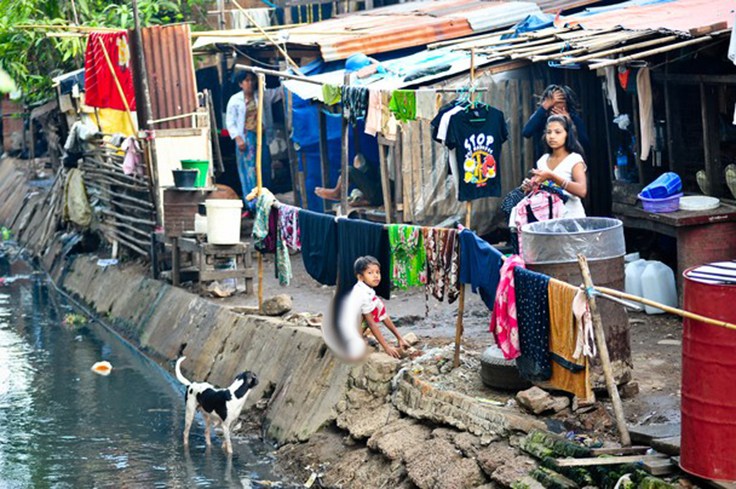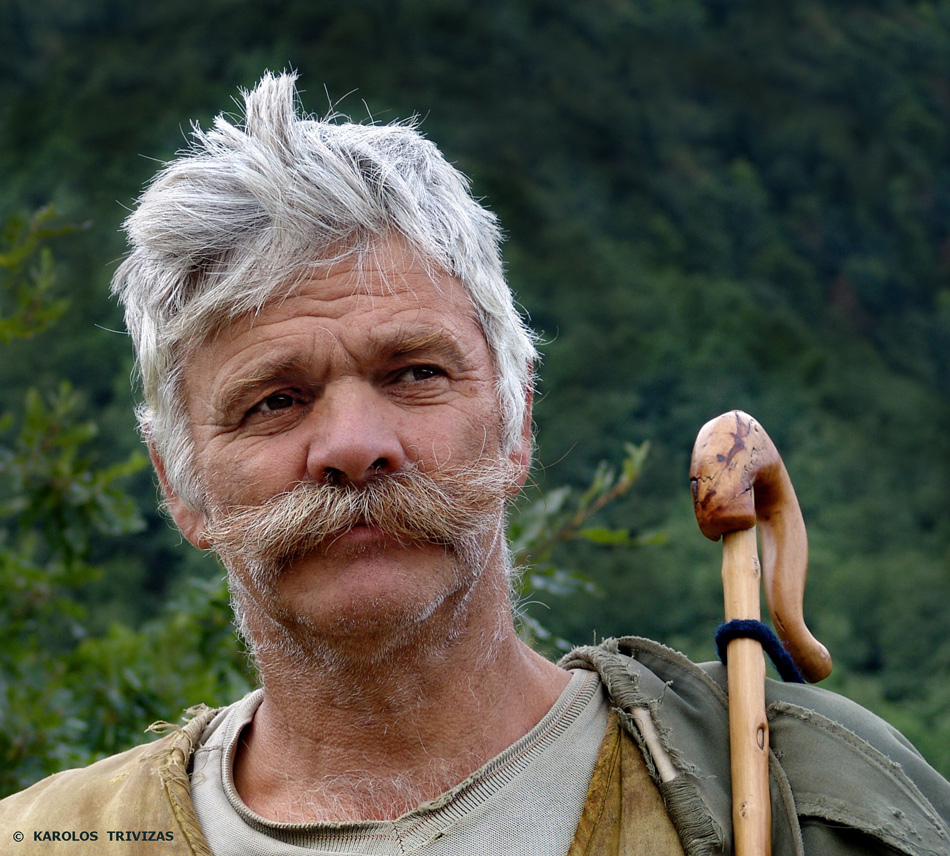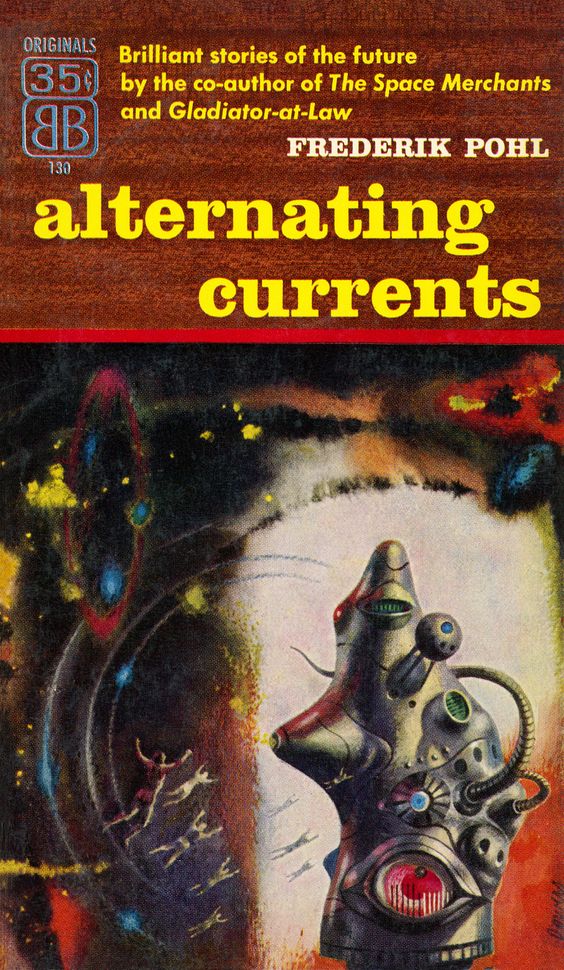The Micro-lending Revolution has done more to improve the lot of ordinary human beings than any other social movement. It has many anticidents, since rotating credit associations and fraternities have a long, though mostly undocumented history. The island of Okinawa, for example, has had multi-purpose, democratically managed co-operative associations called moai for centuries, which operate as effective micro-lenders. [1] The moai are such convivial and effective institutions that many Okinawans attribute their unusual good health and long lifespans to participating in them [2]. Nineteenth century pioneers of savings-and-loan co-operatives in Scotland, Bohemia (Raiffeisen), and Canada (Desjardins) were at first involved in the kind of small scale producer-credit that is today called micro-lending, and it was this element in them that helped create astonishing leaps in social equality and prosperity in those places, though the institutions they founded gradually came to be conventional consumer-oriented banks. In 1976, Muhammad Yunus founded the Grameen Bank, which began as a research project by Yunus and the Rural Economics Project at Bangladesh’s University of Chittagong to test his method for providing credit and banking services to the rural poor. The first loan was for only $27. Read more »
Category Archives: AT - Blog 2007
Wednesday, November 21, 2007- Kiva — A New Twist on Micro-lending.
Tuesday, November 20, 2007 — What’s So Simple?
Many things irritate me when I read anthropological literature, and the work of historians who absorb the premises of anthropologists. Terminology is everything, and no terminology is “neutral”. All names for particular behaviour among humans carry with them imagistic overtones and unspoken value judgments. Sometimes I learn, disconcertingly, that many scholars customarily use a simple term with an implied meaning entirely opposite that which seems obvious or natural to me.
One of those terms is “individualism”. Time and time again, I’ve read some academic paper, book, or article in which the term “individualism” is used with overt or subtle hostility. When the hostility is overt, the terms “selfish” (bad) and “atomistic” (understood to be very very bad) are added in sprinkles. Since “individualism” is, in my mind, a word that designates the most profoundly moral and positive of human attitudes, this usually leaves me somewhat baffled. Many scholars (especially, it seems, British ones) seem to use the word “individualism” to mean “selfishness”, and to associate things like class distinctions, cruelty, dishonesty, theft, and bullying with the word. This, to me, is incomprehensible nonsense, since the word “individualism” means “the practice of respect for all human beings as equal, autonomous, self-governing individuals, with consistent respect for their rights”. Class distinctions are the product of collectivist thought, and individualist thought requires, by definition, a total and absolute rejection of class distinctions. All forms of bullying are violations of individualist morality.
Often, I’ve seen writers contrast “individualism” and “co-operation”… entire books being sometimes built on the premise that they are opposites. Again, this defies any rational definition of individualism, or any use of the word that I would endorse or find natural. Co-operation is something that only individualists do. No collectivist ever practiced co-operation. Co-operation is the natural, logical, and necessary relationship between individualists; it is how things are done by individualists when they act together. To the collectivist mentality, the natural modes of interaction are violence, the threat of violence, and fraud. All the crimes and horrors of human history, from the slave and death camps devised by the ideology of Adolf Hitler and Karl Marx, to the smallest example of bullying in a schoolyard, are the product of some form of collectivism, some sort of assault on the rights of the individual. All that is praiseworthy, and desirable in human relations is the product of the assertion of the equal dignity and rights of the individual human being, in other words, of individualism. Individualism, co-operation, egalitarianism, justice, freedom, democracy, and civilization are near cognates, that is, words that always belong together. Any conception of human affairs that attempts to contrast them is false. Collectivism, violence, hierarchy, injustice, oppression, aristocracy, and barbarism are the contrasting set of near-cognates, words that also belong together at all times.
Another practice that annoys me is the arbitrary use of the word “simple” to designate democratic and egalitarian structures. I recently read a paper which reviewed a variety of “explanations” for egalitarian political structures among various hunter-gatherer societies. In every single system reviewed, egalitarian and proto-democratic political structures were defined as “simple”, as opposed to hierarchical, monarchical, and aristocratic structures. This usage remained unquestioned by any of the scholars involved, and in fact, obtains in virtually every book and article I’ve ever read that touches on the subject. Yet it plainly makes no sense. What is so damn “complex” about a political system that consists of a bunch of assholes screaming orders at people, backed up by a bunch of thugs who beat them up? The fact that huge empires and big pyramids have been built by this process does not make it either complex or sophisticated. This kind of political system exists, in identical form, among many troops of baboons. Egalitarian decision-making, by contrast, requires sophisticated techniques of debate, concensus-forming, and accommodation. There is nothing simple about it. Bashing in heads is simple. Democracy is sophisticated.
But, if you accept the premises behind the cultural classifications employed by most of our historians and anthropologists, then the political body that I inhabit, in which millions of people with different ethnic, religious, and cultural backgrounds engage in a myriad of economic and social interactions with visible harmony and good temper, and in which I can easily approach a federal cabinet minister and argue national policy, is defined as “simpler” and “more primitive” than the hierarchical Nazi death camp at Buchenwald, where there was no trouble determining who was in charge and who was not.
This silly scheme of hunter-gatherers exemplifying a “simple” political system which supposedly inevitably evolved into a “complex” and “sophisticated” system of aristocracy and inequality is part of the overall bundle of nonsense that we have inherited from nineteenth century philosophers. They transformed their worship of power into a framework of clichés, all of which re-enforced the supposition that individualist-egalitarian-democratic ideas are “primitive”, while collectivist ones are “advanced”. You see the residue of this in every museum display or school textbook in which it is glibly explained that some society “evolved” into a “civilized” state by acquiring an aristocracy.
It is time we grew up, and realized that thuggery is not sophisticated.
FIFTH MEDITATION ON DEMOCRACY (written Monday, November 5, 2007)
It’s my contention that both hierarchical and egalitarian behaviour are equally “natural” to human beings. These two methods of interacting with others in a group have co-existed in all human societies, from the earliest stages of our evolution as a species. It is also my contention that, while there is a limited place for hierarchical thinking and behaviour in a good society, it is egalitarian thinking that has created civilization and morality. Any society that is dominated by hierarchy is essentially backward, self-destructive, and immoral. Read more »
Image of the month: Kluane glacial merge, St. Elias Range, Yukon, Canada
Wednesday, October 17, 2007 — Some Thoughts On Burma

Neighbourhood in Yangon, Burma — Burma (also called Myanmar) is considered one the most economically mismanaged countries on earth.
The greatest shame and degradation for human beings is to be ruled by an aristocracy. Whether one is reduced to abject slavery, or merely forced to submit to graded snobberies and unearned privilege, it all comes down to the same truth. Aristocratic government is a violation of fundamental morality, and an intolerable insult to human dignity. It follows that the heroes of our species are those who defy, resist, and overthrow aristocracy, and strive for the only morally acceptable arrangement of human politics: democracy. It also follows that those who seek to impose or preserve dictatorship over human beings are the palpable villains. And as for those who stand by while others risk their lives for freedom, encourage their oppressors, and rush to trade and socialize with the tyrants ― well, no language is vivid enough to describe their cowardice and treachery.
It’s not hard to pinpoint who are the current heroes and villains. Read more »
FOURTH MEDITATION ON DEMOCRACY (written Saturday, September 22, 2007)
Recently, two Canadian high school students did a remarkable thing. It was remarkable enough to generate a large amount of comment in the blogosphere. According to the original news item in the Halifax Chronicle Herald [1], a grade 9 student “arrived for the first day of school last Wednesday and was set upon by a group of six to 10 older students who mocked him, called him a homosexual for wearing pink and threatened to beat him up.” Anyone who has attended high school knows the usual outcome of such situations. But in this case, it was different. Two senior students, Travis Price and David Shepherd, were disgusted by this crude bullying. “It’s my last year. I’ve stood around too long and I wanted to do something,” David explained. The two students bought 75 pink tank-tops and, rallying students through the internet, persuaded half the student body to wear them, or to supply their own. When the bullies next came to school, they were confronted by an ocean of pink solidarity. “The bullies got angry,” said Travis. “One guy was throwing chairs (in the cafeteria). We’re glad we got the response we wanted.”
The protest rapidly spread to thirty other Nova Scotia schools, then across the rest of Canada. High schools are no longer isolated, self-contained, stratified, and despotic mini-societies. Social networking media like Facebook and MySpace are enabling rapid, fluid and democratic communication, not only between students in the same school, but linking them to every other school in the world. Read more »
THIRD MEDITATION ON DEMOCRACY (written Saturday, August 18, 2007)
Western Europe, and lands culturally derived from it, have made some relatively successful approximations of democracy and civil society, and combined them with noticeable prosperity. People both inside and outside this favoured zone wonder why, and they have often sought the answer in two particular areas: religious traditions, and the dramatic intellectual era called “the Enlightenment”. As someone who has written about the universal aspects of democracy, I’ve often felt some annoyance at what I consider parochial views of history, and dubious ideas of causality. I feel great sympathy for people outside the favoured zone, who are hopeful that they can have a democratic future, but are discomfited by the “second-banana” status that it seems to imply for their cultural heritage. This is especially true in the Islamic world, where past cultural glories and present embarrassments combine to make the search for democratic reform a touchy subject. I think that an excessively cartoonish view of the Enlightenment, and of the relationship between religion and democracy, is part of the problem.
I recently read two articles by Tassaduq Hussain Jillani, a supreme court justice in Pakistan. Though Pakistan has millennia of cultural achievement — it was one of the earliest centers of urban civilization — and it has a well educated population, it languishes under a crude military dictatorship. It has experienced much strife from conflicting religious factions. While its economy is a shambles, the military thugs who run the place take pride in their possession of nuclear weapons. Read more »
SECOND MEDITATION ON DEMOCRACY (written Monday, August 7, 2007)
“Civilization is the process in which one gradually increases the number of people included in the term ‘we’ or ‘us’ and at the same time decreases those labeled ‘you’ or ‘them’ until that category has no one left in it.” — Howard Winters, an American archaelogist who studied ancient settlement and trade patterns [quoted by Anne-Marie Cantwell in Howard Dalton Winters: In Memoriam]
“Voice or no voice, the people can always be brought to the bidding of the leaders. That is easy. All you have to do is to tell them they are being attacked, and denounce the pacifists for lack of patriotism and exposing the country to danger. It works the same in any country.” — Hermann Wilhelm Göring, second in command to Adolf Hitler.
What most tellingly distinguishes democratic from non-democratic thought is its respect for human beings. By this, I don’t mean respect for some nebulous abstraction called “humanity” or “the people”, which is all too easily transformed into a mystical collectivism. It’s a respect for real-life individual human beings, who live, fall in love, have children, and struggle to find security and happiness. In democratic thought, the wellbeing of individual human beings is the purpose and measure of political choices. Wellbeing, to the democrat, is defined first in terms of what matters most to conscious beings — liberty, self-respect, dignity, control over their own lives. The physical necessities of life, such as food and shelter, are meaningless to human beings except within the context of those values. We are not cattle. Read more »


